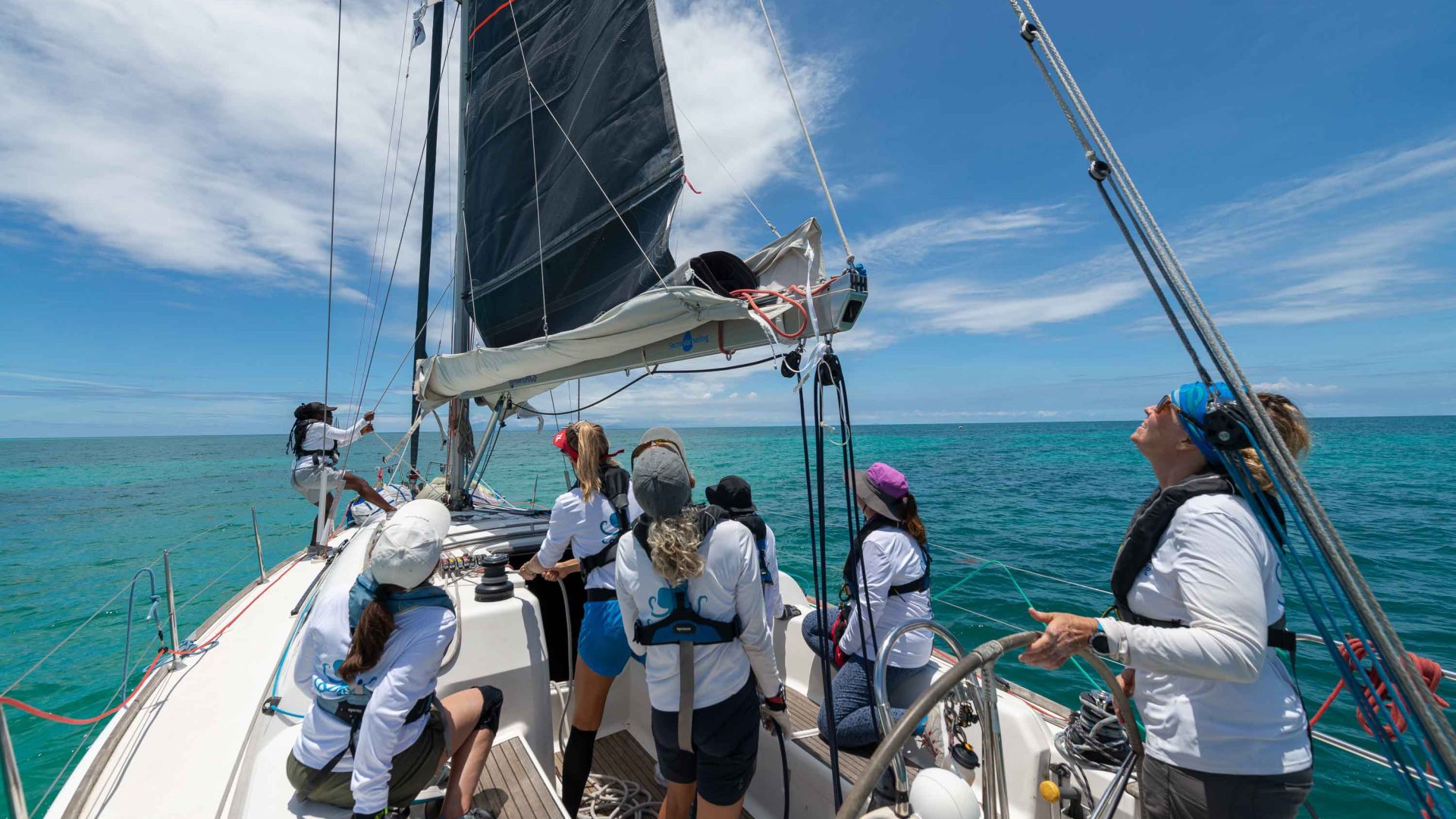
Growing up with a fear of the sea, today’s Antiguan youth are not only learning how to swim, but to race yachts in regional and international competitions. Helen Iatrou takes to the Caribbean Sea alongside them.

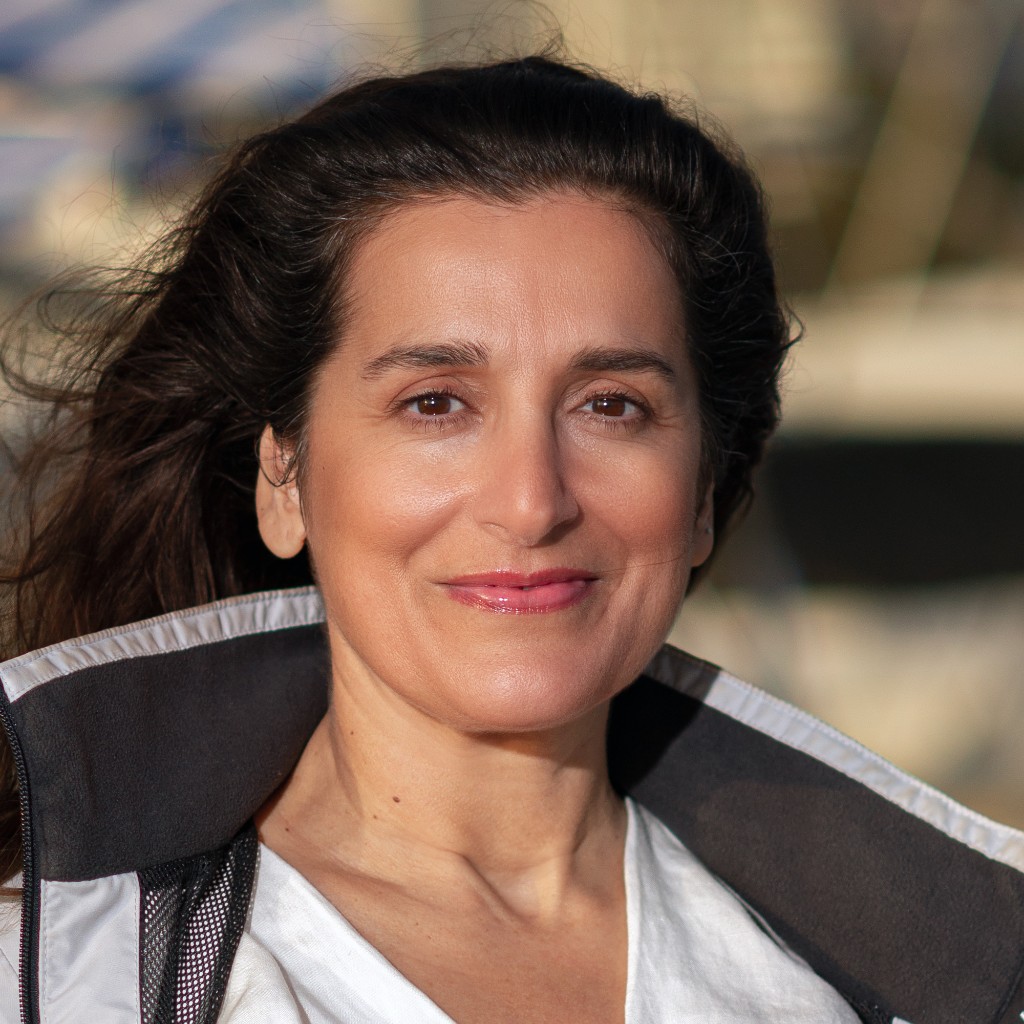
Growing up with a fear of the sea, today’s Antiguan youth are not only learning how to swim, but to race yachts in regional and international competitions. Helen Iatrou takes to the Caribbean Sea alongside them.
Who knows? Who knows? Who knows? Who knows?
I just go where the trade wind blows
As Protoje swings across the stage of Antigua Naval Dockyard, Antiguan women sway hip-waist braids to the rhythmic reggae beat, pointing brightly painted nails in the air and singing the Jamaican artist’s much-loved track. The faint aroma of marijuana, which locals can legally grow at home and carry in small amounts, hangs in the steamy night air.
Sailors who have flown in from the UK, US and Germany, among other countries, swig from bottles of Carib beer. Predominately white men, they’re halfway through racing at Antigua Sailing Week, one of the Caribbean’s biggest and best-known regattas.
I’m on a natural high, excited to be competing in my first Caribbean yacht race and learning to harness those famed east-to-west prevailing winds, just as ship captains have done for centuries. These same winds carried English colonizers across the Atlantic to Antigua in 1632, forcing enslaved Africans to work on highly profitable sugar plantations. Without slave labor, the British Navy would not have been able to build what is commonly known as Nelson’s Dockyard, a UNESCO World Heritage Site, at English Harbor.
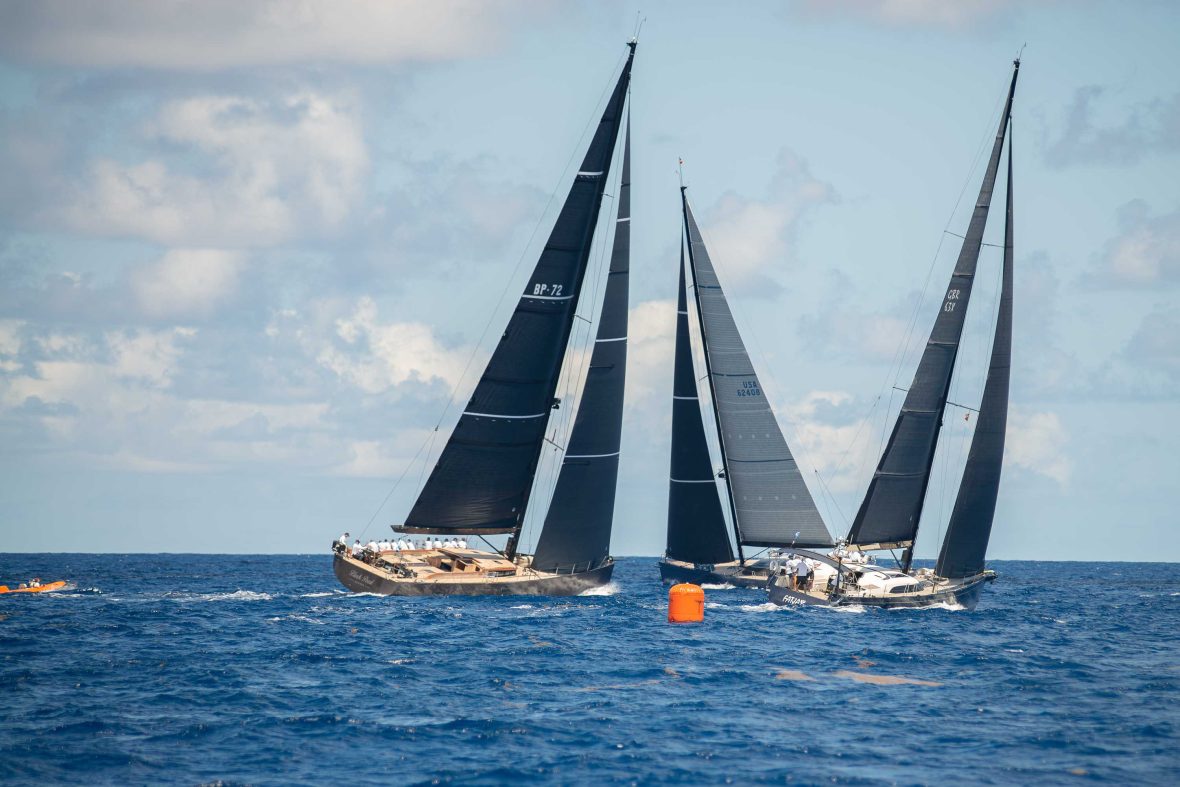
Today, tourism is Antigua and Barbuda’s biggest money-spinner, accounting for about 50 percent of GDP and more than 46 percent of direct and indirect employment. Yachting, in particular, has experienced exponential growth over the past decade. The vibrant Lesser Antilles nation is one of the Eastern Caribbean’s prime yachting destinations, regularly hosting regattas and island-hopping cruisers.
From Antigua Slipway, I admire classic and contemporary sailing superyachts in the harbor, their tall masts piercing azure skies. I step aboard the 65-foot performance yacht Spirit of Juno and meet Irish skipper David Hanks and my fellow race crew. Of 18 sailors, the first mate and I are the only females. With the exception of Antiguan-American T’Quan James, the rest are white British and American business owners or executives.
“Many slaves were thrown overboard because they were sick or suffering. Some of them wanted to get away. They preferred to die out in the ocean rather than be subjected to slavery. I think it has left a trauma on our people.”
- Edith Clashing
At regatta headquarters—Falmouth Harbor—I notice Antiguans represent a small proportion of the 750-strong collective crew racing 78 boats. Antiguans have long been considered master craftsmen, with exceptional woodwork and boatbuilding expertise, yet are glaringly few and far between when it comes to the local lucrative yachting scene.
It’s a telling reflection of the lack of diversity in yachting and racing worldwide, enduring bastions of affluent white men.
One of the key stumbling blocks, says Antigua Swimming Federation president Edith Clashing, is that a large proportion of Antiguans do not know how to swim because they were raised to fear the sea.
She says there aren’t any statistics on the level of swimming competence in Antigua, but estimates suggest that as few as five percent of youth can swim, adding that the best place to reach young people is in primary school. However, water safety and swimming education are not part of the curriculum like it is in my native Australia, for example.
Clashing traces this trepidation to centuries of trans-generational trauma linked to the transatlantic slave trade. Between the 16th and 19th centuries, enslaved Africans were shipped to the Caribbean islands, including Antigua. Raised beside the ocean, rivers and lakes, West Africans, in particular, were considered highly capable swimmers. But the brutal conditions of the Middle Passage proved to have far-reaching effects.
“Many slaves were thrown overboard because they were sick or suffering,” explains Clashing. “Some of them wanted to get away. They preferred to die out in the ocean rather than be subjected to slavery. I think it has left a trauma on our people.” She also believes parents may have had a traumatic experience, such as a near-drowning, and passed on a fear of the sea to their children. “We work with them to overcome this fear,” she tells me. “We do the best we can and we get results,” she says.
We discuss how swimming as a sport has experienced growth in Antigua and Barbuda over the last 10 to 12 years. Parents are increasingly booking their children for swimming lessons. Antigua’s national swim team has achieved considerable success.
I find this proof in Emily Gaillard who, at 15, is one of Antigua’s most promising young competitive sailors. The former national swim team member took up dinghy sailing just four years ago and swiftly worked her way up through the Optimist class—a small, single-handed sailing dinghy which children under 15 often learn to sail on—before reaching world championships.
In February, Gaillard made history as the youngest individual to compete in the demanding 600-mile RORC Caribbean 600 offshore race, crewing with Spirit of Juno. Briefly at the helm during Sailing Week, the teen radiates quiet self-assuredness.
“I always knew I wanted to become a captain. I’ve always had this love for the water.” After taking dinghy sailing lessons and finishing school, Small wanted to work in yachting but no one could tell her how—“because not many locals sail.”
- Ryanne Small, Antiguan sailor
Gaillard, who graduated out of Optimists and now competes in the single-handed one-design ILCA (or Laser) Olympic class dinghy, says sailing has taught her communication and problem-solving skills. “It’s built my confidence physically and mentally,” she tells me. “Just being able to look and analyze what the situation is and figure out how to solve it.”
With ambitions to compete in the Olympics and The America’s Cup, Gaillard heads to the Youth Sailing World Championships in Brazil in December. In the future, she hopes to study mechanical engineering and work on boats.
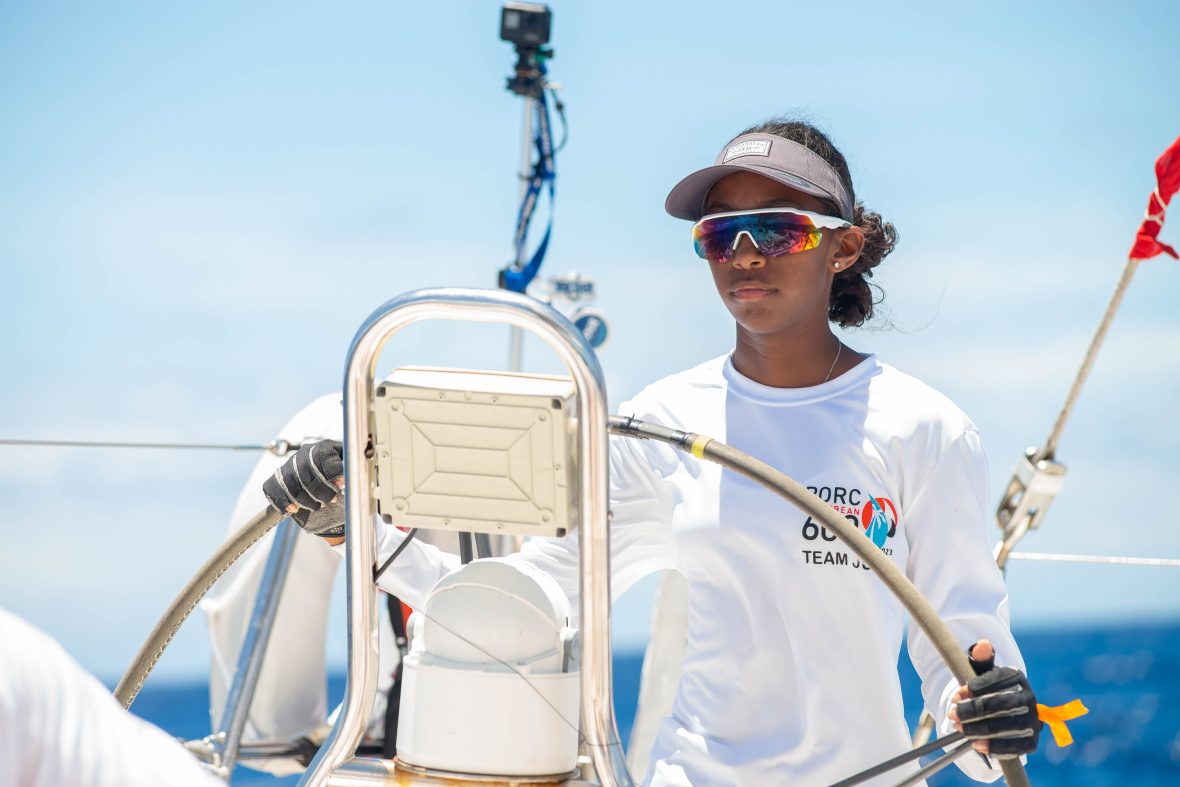
Hopping over to the 40-foot performance cruiser Hatha Maris, owned by sailing school Second Star Sailing, I meet three young Antiguan female sailors and fellow crew for the final three days of racing.
Ryanne Small, 20, developed a love for boats from an early age as she watched charter yachts sail into Jolly Harbor, where her cosmetologist mother works.
“I always knew I wanted to become a captain,” says Small. “I’ve always had this love for the water.” After taking dinghy sailing lessons and finishing school, Small wanted to work in yachting but no one could tell her how—“because not many locals sail”, she says.
Small’s mother connected her with a client, the new female owner of a yacht charter company, which saw her immediately hired. Small, who works as freelance day charter crew, says: “Once I got in, it was easy to meet other people. You talk to them and they invite you on their boat to sail.”
Small crewed on Hatha Maris for Sailing Week’s women’s day race last year on the invitation of Second Star Sailing owner Lyssandra Barbieri. This led to a seven-month internship offered to Antiguan women as part of the school’s female-empowering Women At the Helm program.
“There are so many [marine industry] jobs not being filled by Antiguans, particularly Antiguan females. I wanted to make a difference and foster local sailors,” says Barbieri. “Sailing equips young people with critical life skills, such as learning to work as a team and remaining calm in difficult situations.”
Interns take Royal Yachting Association (RYA) accredited sailing courses and learn how to run a sailing school. Small hopes to move on to week-long charters and yacht deliveries, which can be well-paying.
In contrast, 19-year-old Camberya Akaya Barkoye was born and raised in Guyana, where she says the vast majority of the population can swim. “We grew up around rivers and creeks and learned to swim in them … Everyone in our family can swim,” says Barkoye, who works as a hotel watersports instructor.
In 2019, Barkoye signed up for affordable sailing lessons at the non-profit National Sailing Academy of Antigua and Barbuda, which also offers free water confidence and safety classes and scholarships to youth. Today, she is a dinghy sailing instructor for the organization. “I want to become a captain on a motor superyacht … They’re very luxurious and I would get to travel the world,” she tells me.
On a smaller boat for now, Barkoye and I work the jib, the sail forward of the mast. She is my trustworthy cheerleader. Each time we tack, which involves changing the boat’s direction and swiftly moving the jib to the other side of the vessel, I grind the winch as Barkoye holds the jib sheet (rope) and chants: “Go, go, GO!”. Teamwork is crucial and seconds can make the difference.
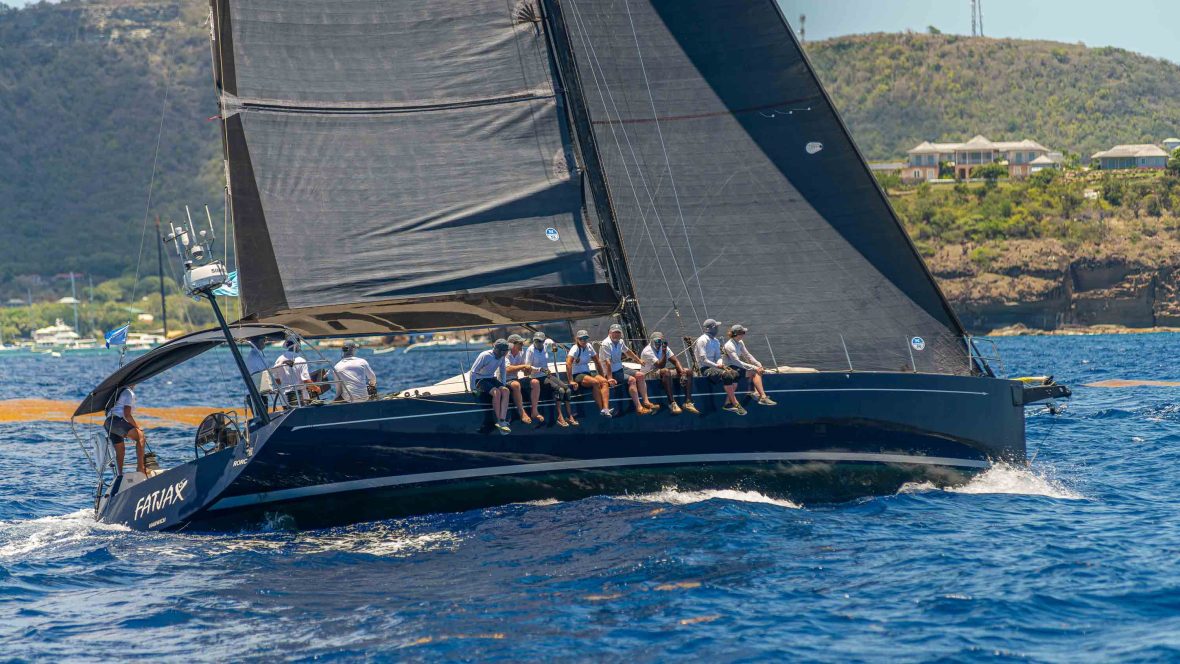
On the second-last day of racing, Dominican Republic-born and -raised marine engineering graduate and Second Star Sailing intern Giliana Matthias arrives at the dock, looking flustered. “I’ve been offered a job on a superyacht in Dominica and I need to fly out tomorrow,” she tells Barbieri, who encourages her to accept it.
Matthias looks me in the eye and confesses, in a quivering voice: “You don’t know how hard I’ve toiled for this.”
***
Adventure.com strives to be a low-emissions publication, and we are working to reduce our carbon emissions where possible. Emissions generated by the movements of our staff and contributors are carbon offset through our parent company, Intrepid. You can visit our sustainability page and read our Contributor Impact Guidelines for more information. While we take our commitment to people and planet seriously, we acknowledge that we still have plenty of work to do, and we welcome all feedback and suggestions from our readers. You can contact us anytime at hello@adventure.com. Please allow up to one week for a response.

Born in Australia to Greek immigrant parents from a tiny, remote North Aegean isle, freelance journalist and guidebook author Helen Iatrou relocated to Athens so she could more readily globe-trot. When she isn't researching travel, yachting and sustainability stories, she can be found cruising and racing sailing yachts from the Mediterranean to the Caribbean. Her work appears in Lonely Planet, National Geographic Travel, CNN Travel, Condé Nast Traveller. Robb Report and AFAR.
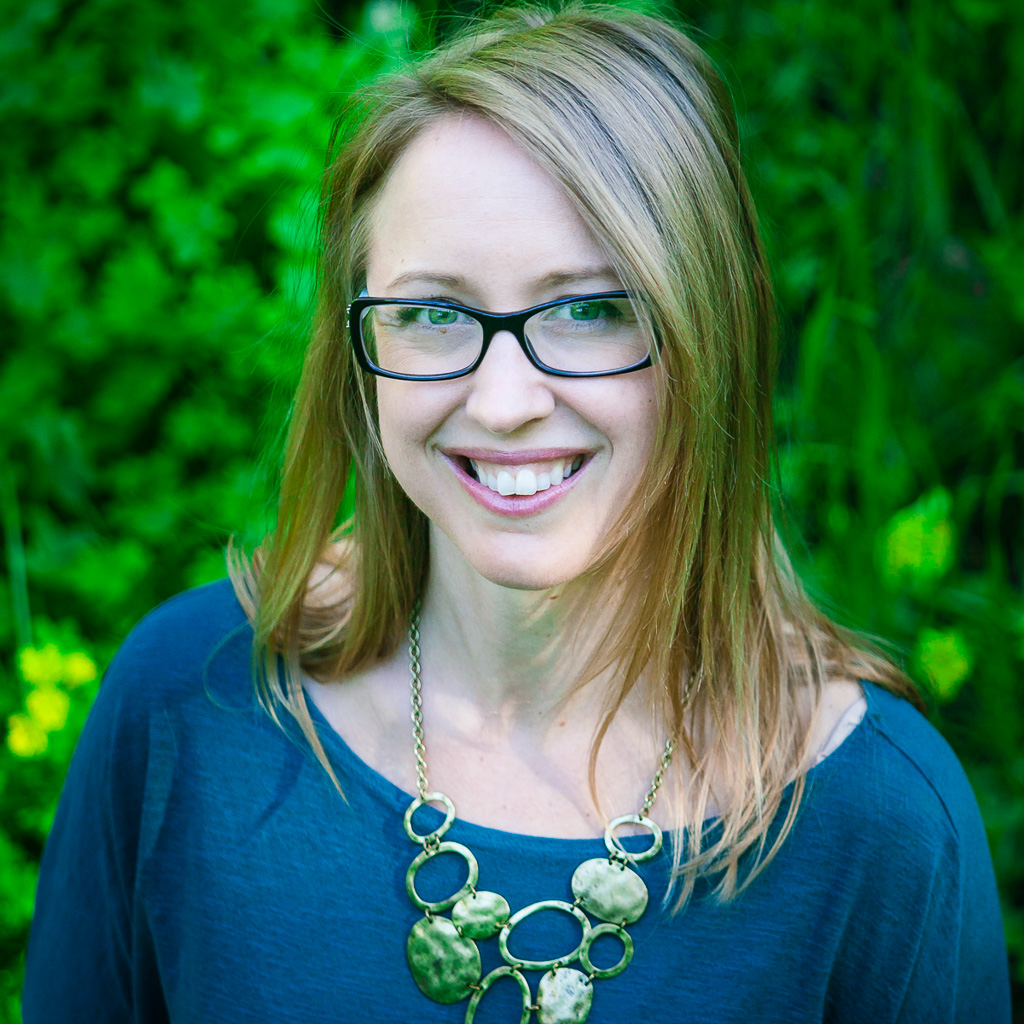

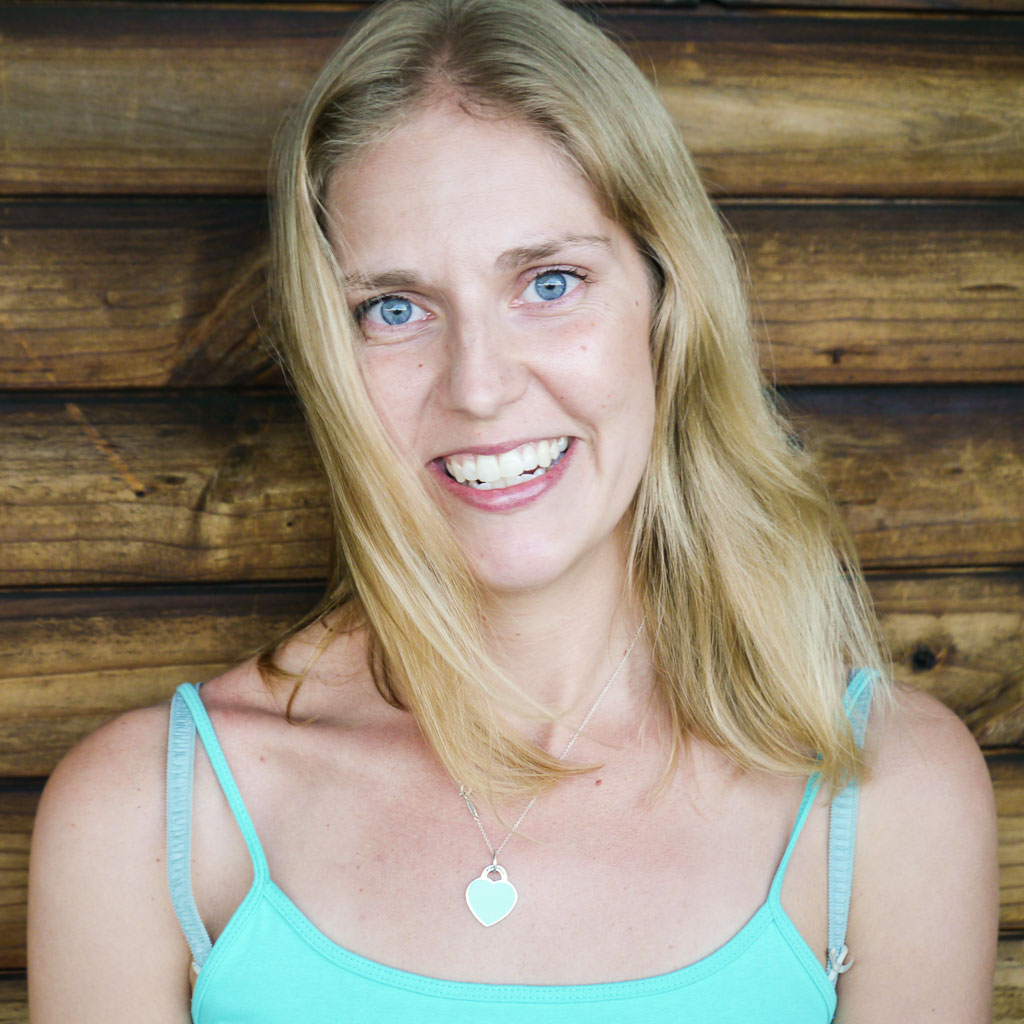

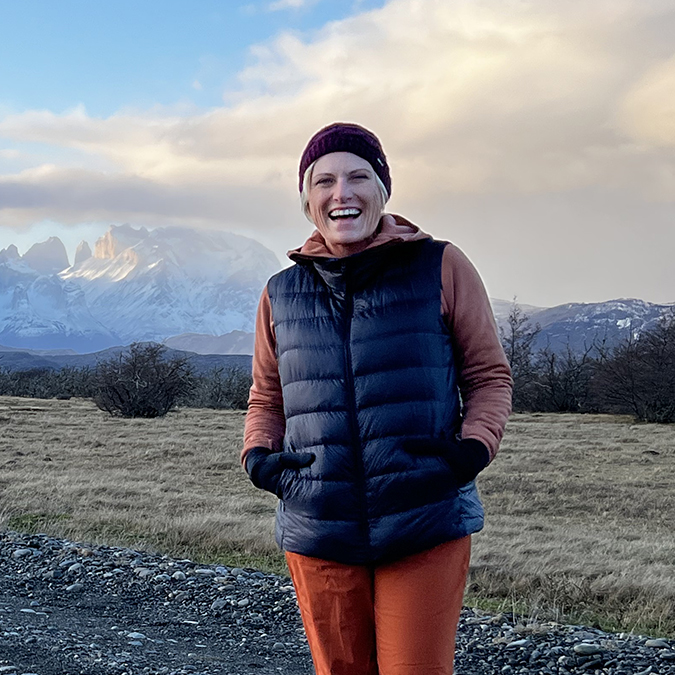

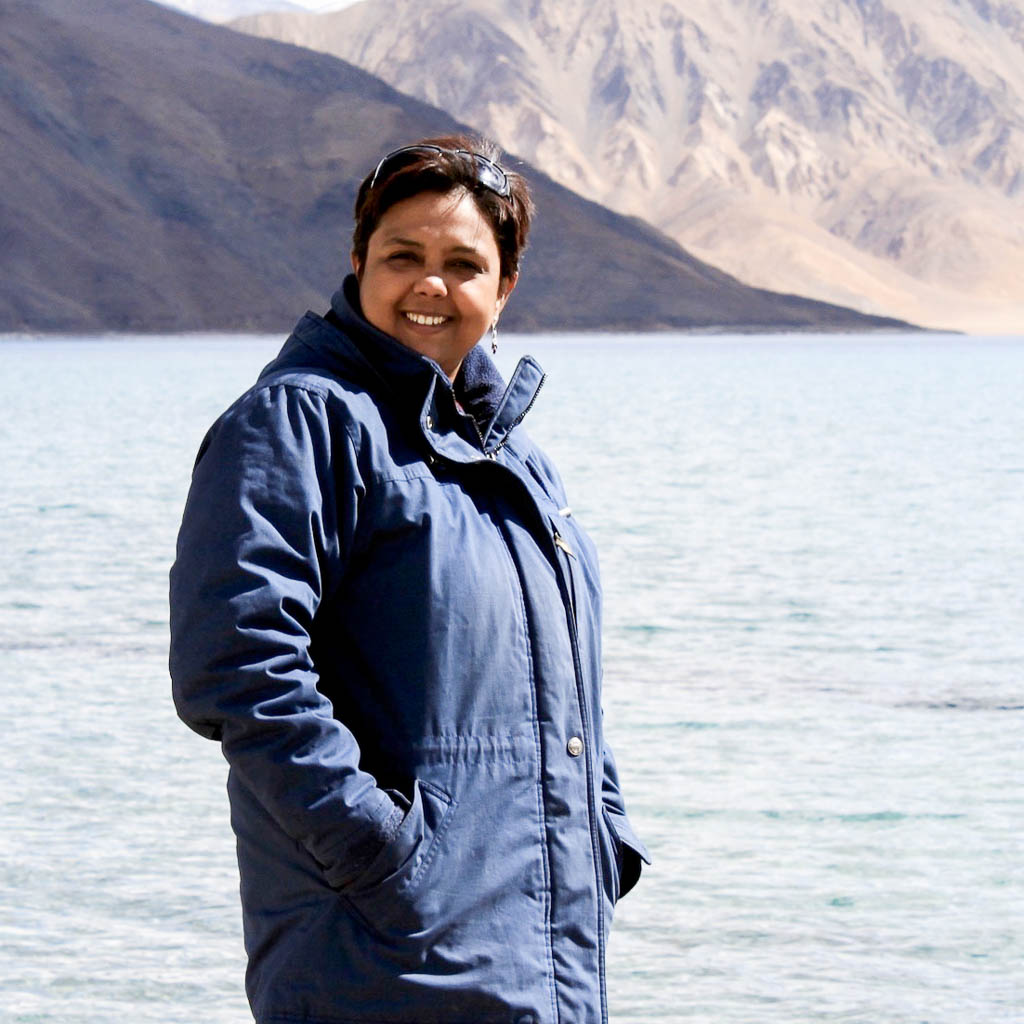

Can't find what you're looking for? Try using these tags: